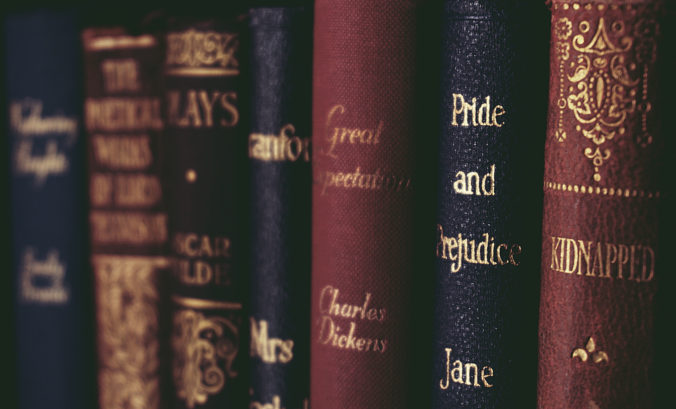In 1864, Fyodor Dostoyevsky wrote a novella called Notes from the Underground. It was written as a response to the political and social ideologies that were emerging in Russia at the time. Particularly, it was a response to a novel called What is to be Done?, written by his fellow countryman, Nikolay Chernyshevsky, in 1863.
Fun fact! What is to be Done? was also a novel written as a critique of ideas, those put forward by Ivan Turgenev a year earlier, in his novel Fathers and Sons.
Thats what Russians did back then: write immortal literary fiction at each other.
Chernyshevsky’s novel argued for industrial production to be organized by socialism, utilitarianism, and cooperative ideals. It focused on the idea that man, if aimed in the right direction, would always act in his best interest. It would even inspire Vladmir Lenin and also the Russian revolution in the early 20th century.
Dostoyevsky’s novel was aimed at disproving Chernashevsky’s ideas by showing that man is irrational, and therefore doesn’t always act according to his best interests. He showed that the utopianism ideas and collectivism that were emerging at the time didn’t take into account these truths.
Even though the novel might be political and social in nature, it was Dostoyevskys understanding of the human condition and more specifically social anxiety that makes it especially memorable. The character’s first words in the novel are some of literature’s most famous: “I am a sick man, I am a spiteful man, I am an unattractive man.”
This is from a review of the book from the Russian philosopher, Mikhail Bakhtin. He describes the inner workings of Dostoyevsky’s character:
“What the Underground Man thinks about most of all is what others think or might think about him: he tries to keep one step ahead of every other consciousness, every other thought about him, every other point of view about him.”
Mikail Bakhtin
If you’ve ever had anxiety before, you can probably relate.
Our mind likes to play tricks on us. Our imaginations create scenarios in our heads, and we can be led astray. We are driven by our emotions, an unfortunately, it means that we can suffer from them. Something John Steinbeck wrote about in East of Eden.
“Some people think it’s an insult to the glory of their sickness to get well”
John Steinbeck
Mark Twain had the same idea when he said:
““Anger is an acid that can do more harm to the vessel in which it is stored than to anything on which it is poured.”
Mark Twain
It’s bad enough that we filter life through our emotions, we’re also are hard wired for negativity. Together they are a recipe for unhappiness.
Ever wonder why after a handful of people give you a complement and one person says something mean, we usually only remember the mean comment. Same thing when we get our performance review at work. We don’t think about all the good things our boss has said about us. Just the areas we need to improve on.
Somewhere along the way we learned to be negatively biased. It’s tied to our evolutionary history.
When an animal sees a predator appear, it only gets one shot at making the right decision.
Negative conditioning helps us survive.
We can touch the stove ten times when its cold and not learn anything. The one time we touch it when it’s hot, thats when we learn. We learn to pay attention to those moments.
A friend of mine and his girlfriend broke up a few years ago. They were together all the time, every time I saw him, I could expect to see her too. I liked her, and we became friends. A few weeks after they broke up, I sent her a message. I asked if she wanted to get together. I had still been seeing my friend on a regular basis after the breakup, but I hadn’t seen his now-ex-girlfriend since. I still cared about her. I wanted to let her know that I thought that we were still fiends and that I was there for her. I felt torn. I didn’t want to appear to pick sides. I even google searched appropriate ways to handle the situation. I had a panic attack. I didn’t want to seem cold, but I also didn’t want to overstep my boundaries. I felt like I was being nosey. I felt like I was intruding on their privacy. Would my friend be jealous? What would his other friends think? A hundred things popped into my head. My mind was playing out all the negative scenarios of possible futures in my head.
I became paralyzed with self doubt. I eventually reached out to my friend which wasn’t easy either. Was I blowing this all out of proportion? Was I just bothering him with my made-up problems? I told him what I had been thinking and he alleviated my fears and reassured me that everything was cool.
I realize I could have just told the truth initially, but it’s not always easy. Maybe I figured a grander gesture might have meant more. Maybe I didn’t even think about it.
Either way, the damage was done. My mind had already been burned on the stove. The whole ordeal had been uncomfortable enough for me to try to avoid similar situations in the future.
Even though that I knew deep down that none of those things were true, that I was misjudging the characters of those around me, I still convinced myself that the worst case scenario was the likely outcome.
It has taken a long time for me to overcome some of these anxieties. I’ve had to learn to not listen to my irrational self. It’s not easy and I’m not always good at it.
This is a quote that I repeated to myself countless times. It has helped me think clearly and logically. I have it permanently etched into my mind.
“You wouldn’t worry so much about what other people think of you if you realized how seldom they do.”
Eleanor Roosevelt
It’s so true, and it’s another example of how our decision making ability is far from rational. How often do we think about other people? Definitely not as much as we think about ourselves.
Marcus Aurelius understood this too.
“It never ceases to amaze me: we all love ourselves more than other people, but care more about their opinions than our own.”
Marcus Aurelius
So…Why do we do this to ourselves?
Psychologists, Daniel Kahnamen and Amos Tversky spent years studying questions like these.
They came up with the notion of “cognitive bias” and they would eventually win a Nobel prize for their work.
Their names might sound familiar. The true story behind the movie Moneyball, was based on their theories.
Here are a few of the common examples of their cognitive biases:
The anchoring effect: Relying too much on the initial piece of information.
Confirmation Bias: Focusing on information that only confirms existing preconceptions.
Endowment Effect: The tendency for people to ascribe more value to things merely because they already have them.
Gamblers Fallacy: Believing that future probabilities are altered by past events, when in fact they are unchanged.
There are about a dozen more of these cognitive biases.
By using judgements like these, we create subjective realities from our perceptions of our inputs. They can lead us to perceptual distortion, inaccurate judgement and illogical interpretation.
I stole that last bit from wikipedia. I don’t give a shit. I’m not in school anymore.
So Dostoyevsky was right. We’re irrational beings, and we can’t always be trusted to make the best decisions for ourselves. But by choosing to think instead of react, by teaching ourselves to be governed by our minds and not our emotions, we can overcome many of our minds nasty habits and tricks.
We all know that Dostoyevsky didn’t need to write a book to prove that Chernyshevsky’s ideas would fail, but I’m glad he did.
I love these old classic books because so many of these old writers were more than just entertaining story tellers. They have so much more to teach us. Dostoyevsky was a psychologist and a philosopher just as much as he was a author.
“Maybe the knowledge is too great and maybe men are growing too small. Maybe kneeling down to atoms, they’re becoming atom sized in their souls. Maybe a specialist is only a coward, afraid to look out of his little cage. And think what any specialist misses – the whole world over his fence.”
John Steinbeck
Thanks for reading.




Recent Comments